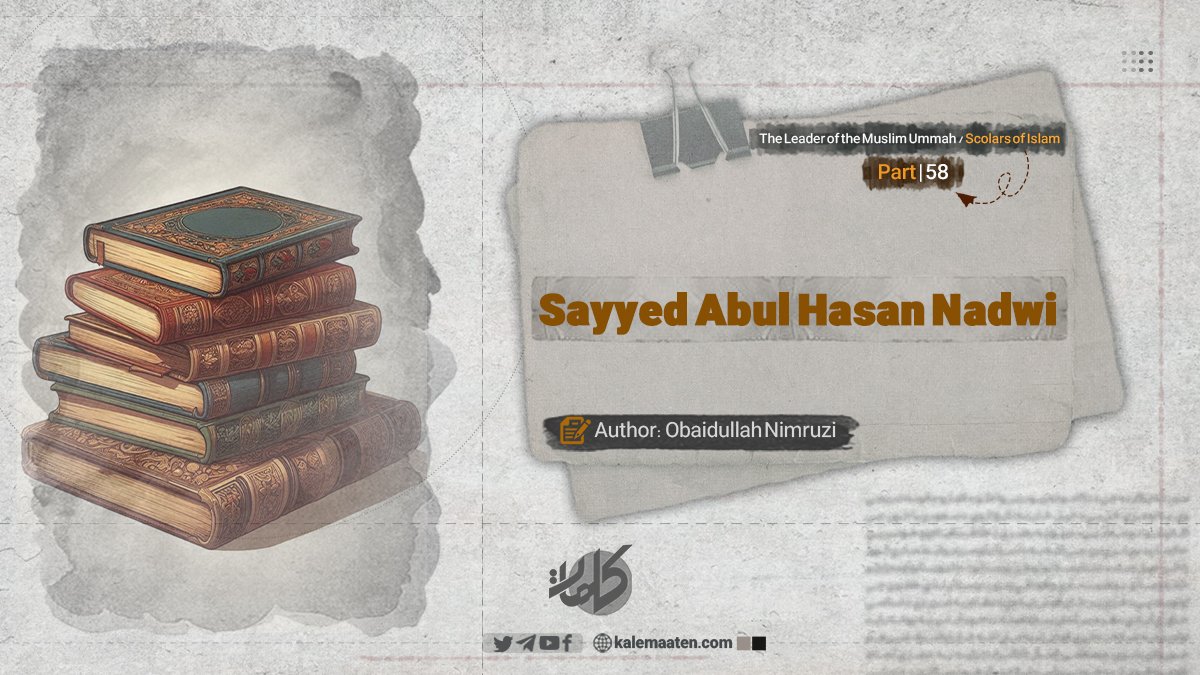
Author: Obaidullah Nimruzi
Allama Sayyed Abul Hasan Nadwi ‘may Allah have mercy on him’ (Part 58)
Meeting with Faisal bin Abdul Aziz and Fahd
In 1963, Allama Sayyed Abul Hasan Nadwi, may Allah have mercy on him, met with Emir Faisal bin Abdul Aziz at the royal palace. During this meeting, he discussed and exchanged views on the dangers facing Saudi Arabia and the land of Hejaz. He stated frankly that this land had taken great steps towards Westernization and that he feared that the sanctity and purity of the Two Holy Places would be affected and take on a different color. Emir Faisal listened carefully and attentively to this compassionate advice and assured him that such a thing would not happen.
After King Faisal took over the reins of affairs, a detailed letter was sent to him from Imam Nadwi. In this letter, the special status and great mission of the land of Hejaz were emphasized, and it was stated that this land must maintain its special status in every era. In response to this letter, King Faisal wrote: “With appreciation and gratitude for the pure feelings and Islamic spirit of your religious zeal, we assure you that we will never allow things that contradict the holy religion and its beautiful teachings to occur.”
Imam Nadwi did not stop at these measures and once again spoke in a letter about the unfortunate consequences of seeking well-being, indulgence, lust, and following whims and superstitions. He pointed out the deadly diseases of society and the dangers that destroy faith. King Faisal also provided an enlightening and convincing response.
Meeting with King Khalid and Fahd bin Abdul Aziz
According to his pure thoughts, Imam Nadwi had numerous meetings with King Khalid bin Abdul Aziz and Fahd bin Abdul Aziz. He always expressed regret about the unhealthy path and adherence to Western culture in Saudi Arabia and warned about the dangers facing religion and faith. In letters to King Fahd, Imam Nadwi made him aware of his leadership position and Islamic responsibilities, discussing the possible consequences of deviation from Islamic identity.
In these letters, he referred to educational methods, the negative effects of media, the increase in wealth, the role of newspapers and magazines that promote corruption and seductive stories, and he enumerated the destructive effects of these factors.
Mawlana’s Advice and King Faisal’s Tears
Although kings and rulers are often less influenced by the advice of Islamic thinkers, Imam Nadwi’s passionate and persuasive words had an effect even on those in power. It is narrated that King Faisal was so moved by Maulana Nadwi’s advice that he could not control his tears.
Khurshid Nadim writes: “Mawlana spoke with eloquence, and King Faisal stood listening. In his speech, Mawlana referred to the Muslim kings of the past—kings whose power encompassed the entire Islamic lands but who lived simple lives and shed tears at night in the court of Allah. He compared these conditions with the current situation and spoke of the plight of the Muslims of Palestine, Kashmir, and other regions.”
When Mawlana finished speaking, tears flowed from King Faisal’s eyes, and he wept loudly. The emotion was so profound that the guards entered the room, but the king waved them out. Then he turned to Mawlana and said: “The kings of the past had such qualities because they had advisers like you by their side. You always come and benefit us with your advice.”
King Faisal set aside a considerable sum for Nadwa al-Ulama, but Mawlana refused to accept it and said: “Nadwa’s transactions are progressing in the best way with the grace of Allah.”
“For years, the world will listen to the whispers of the melodies that I have played in this dome”
These stories, like a page from the brilliant history of Islam, remind us of the great spiritual men of past centuries. The truth is that in every era, there have been men of wisdom and insight, and their lives and words have been full of inspiration and guidance. Undoubtedly, Allama Sayyed Abul Hasan Nadwi, may Allah have mercy on him, is one of these great men in the present era.
Continues…


